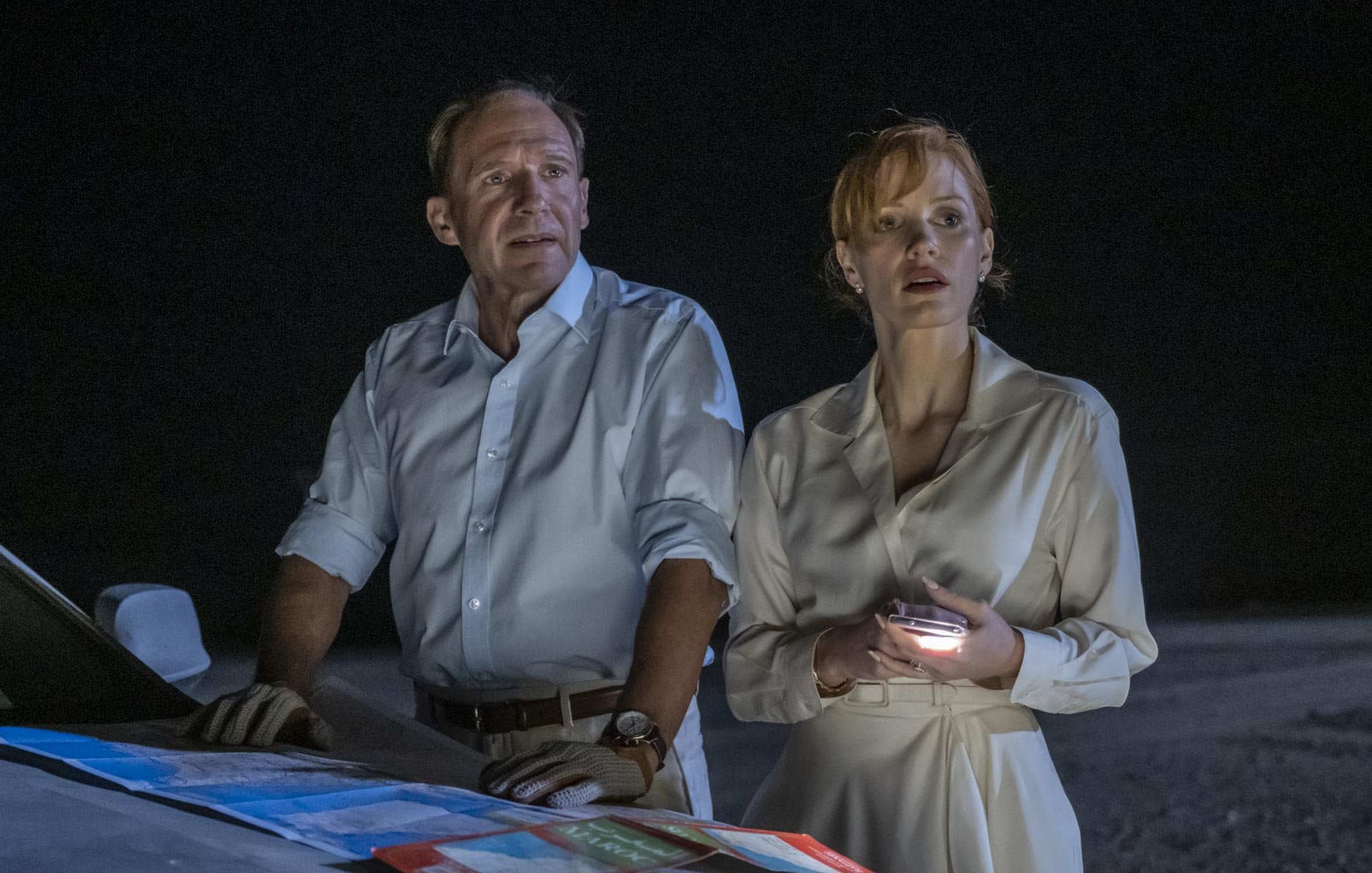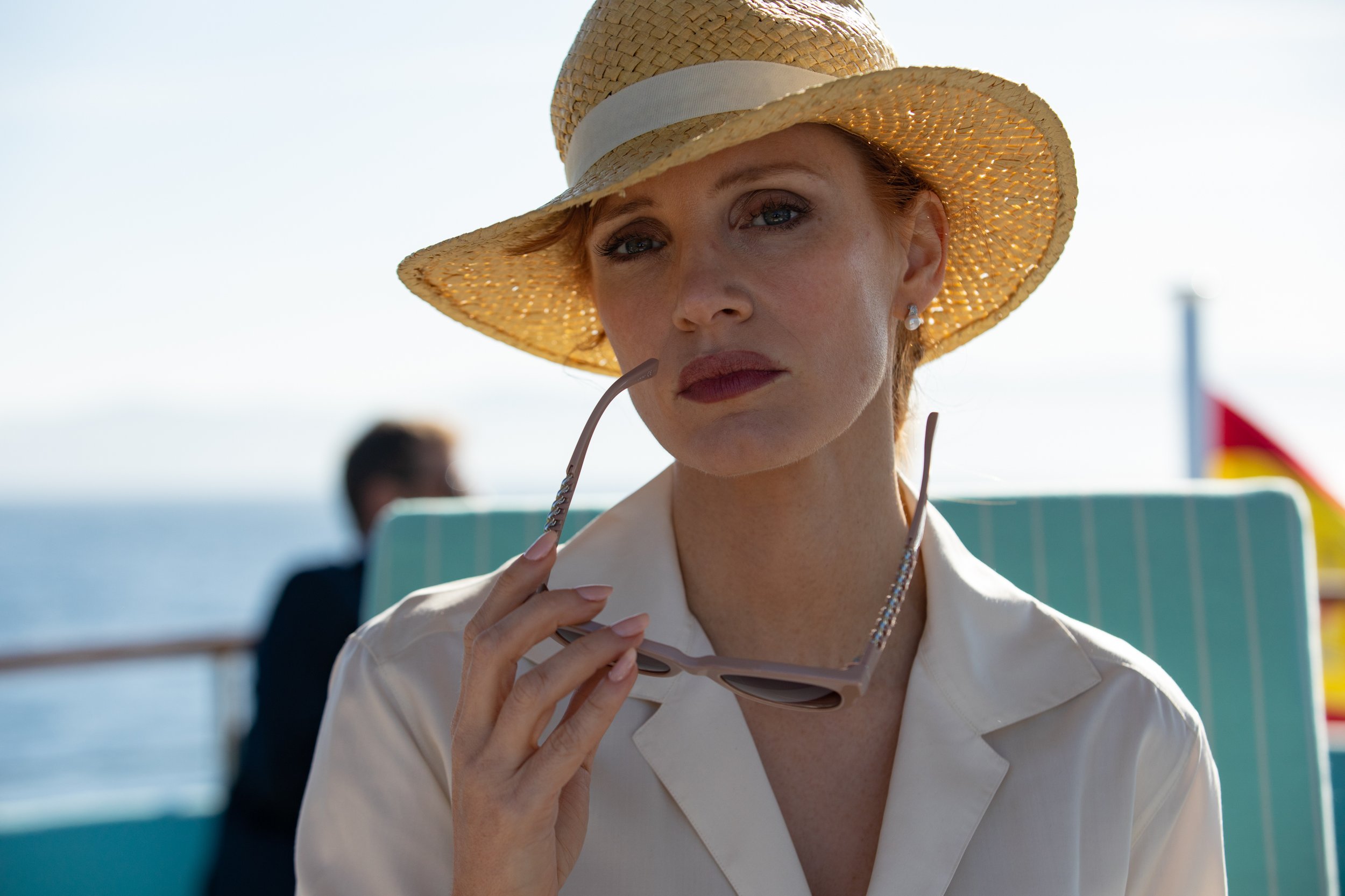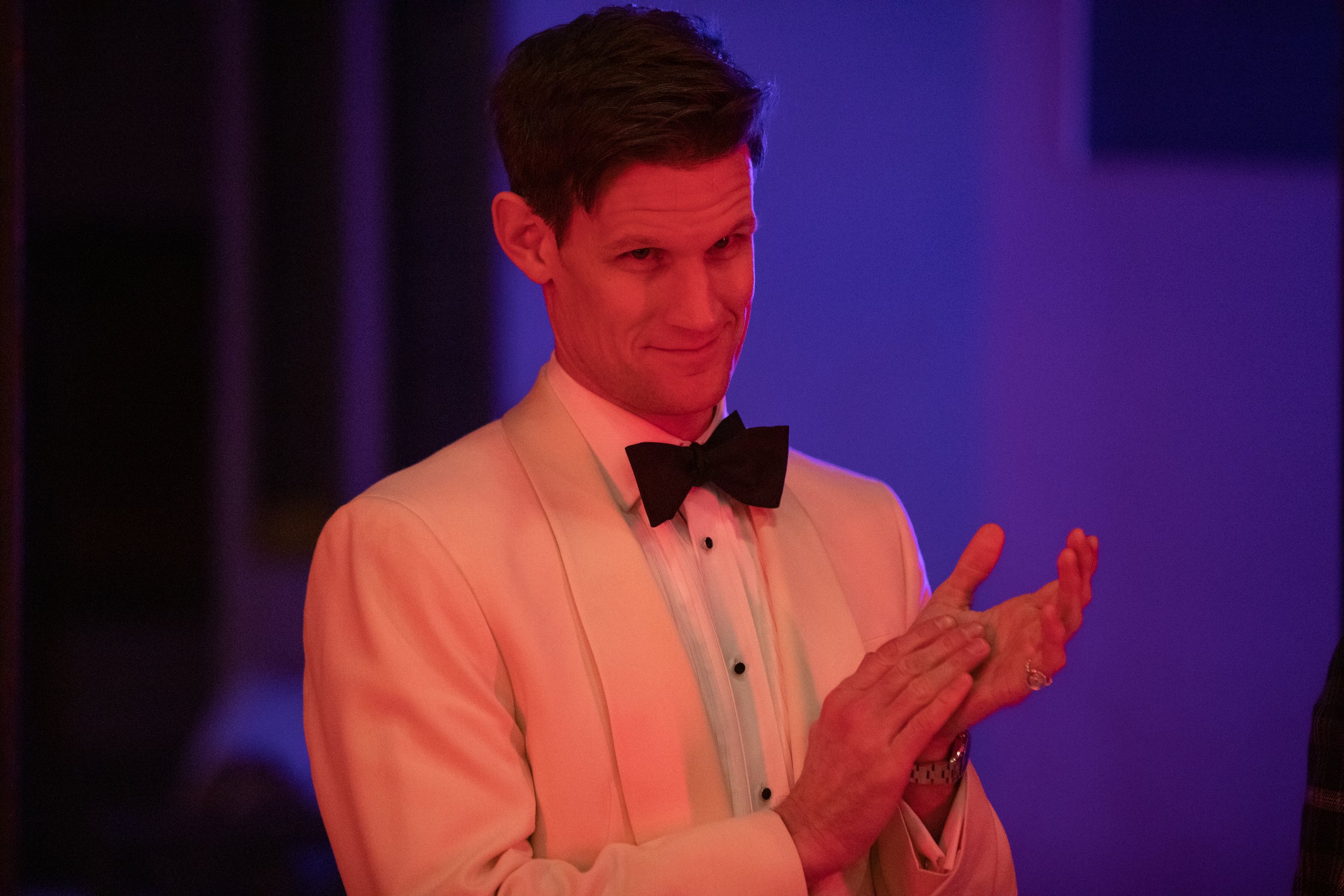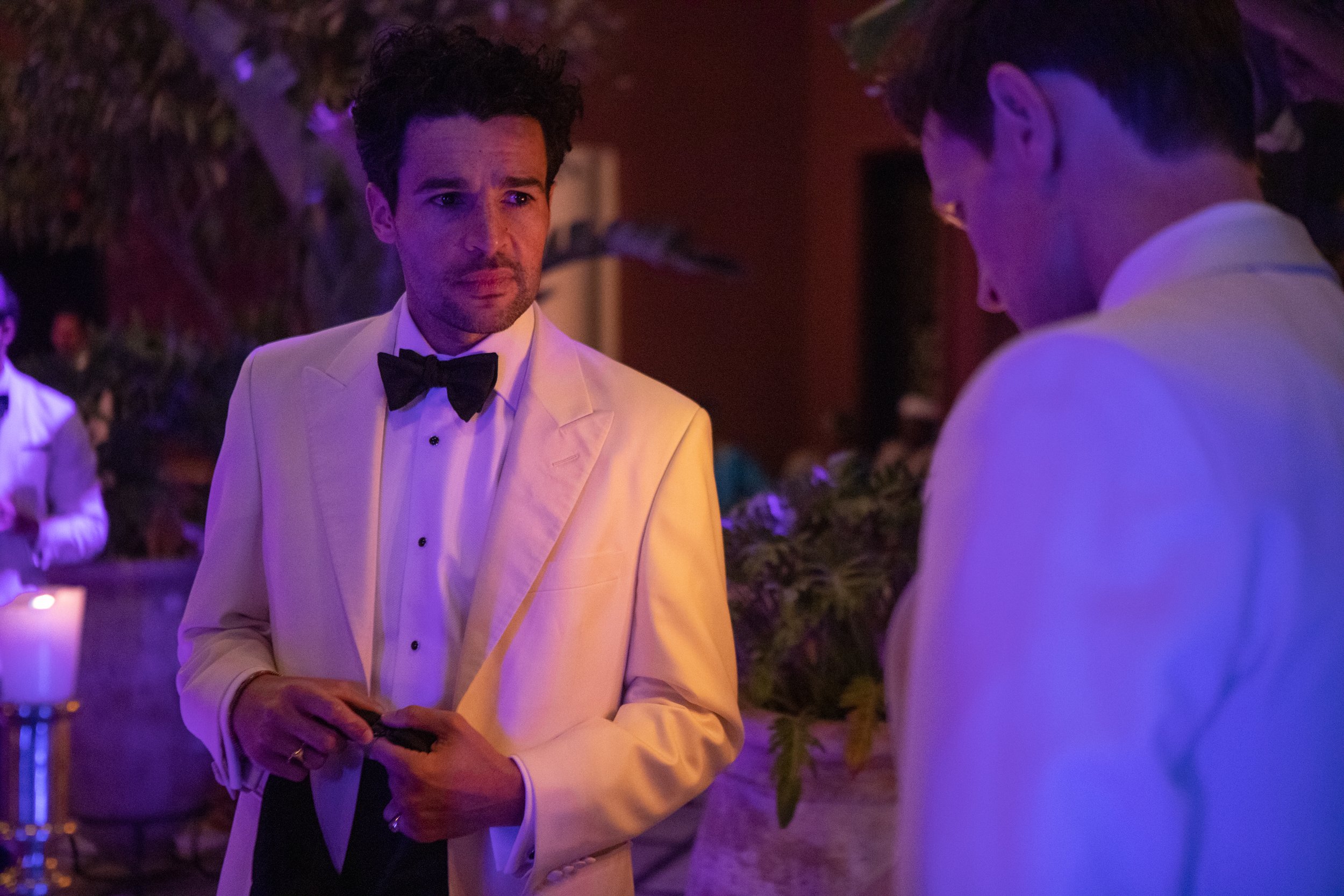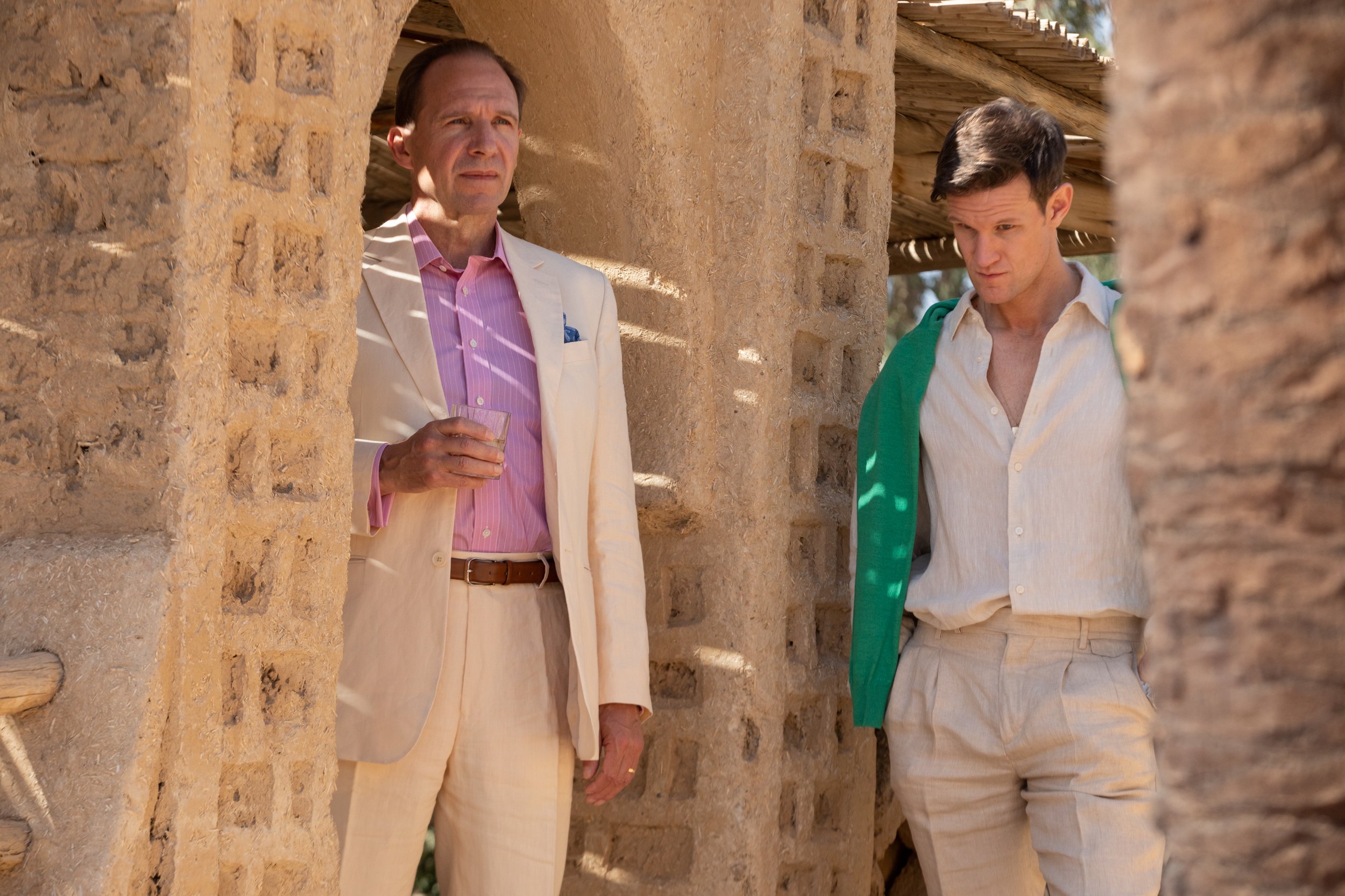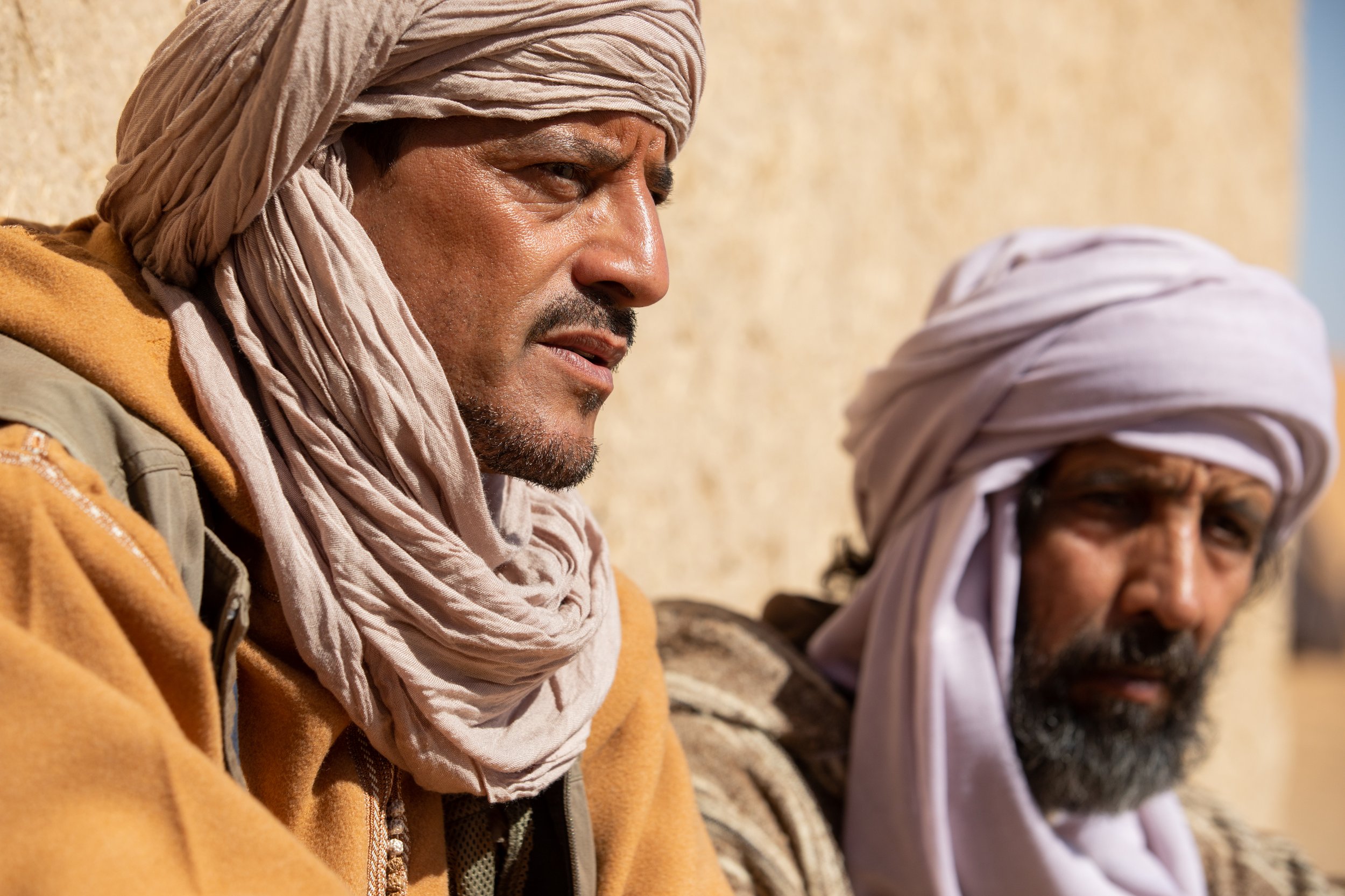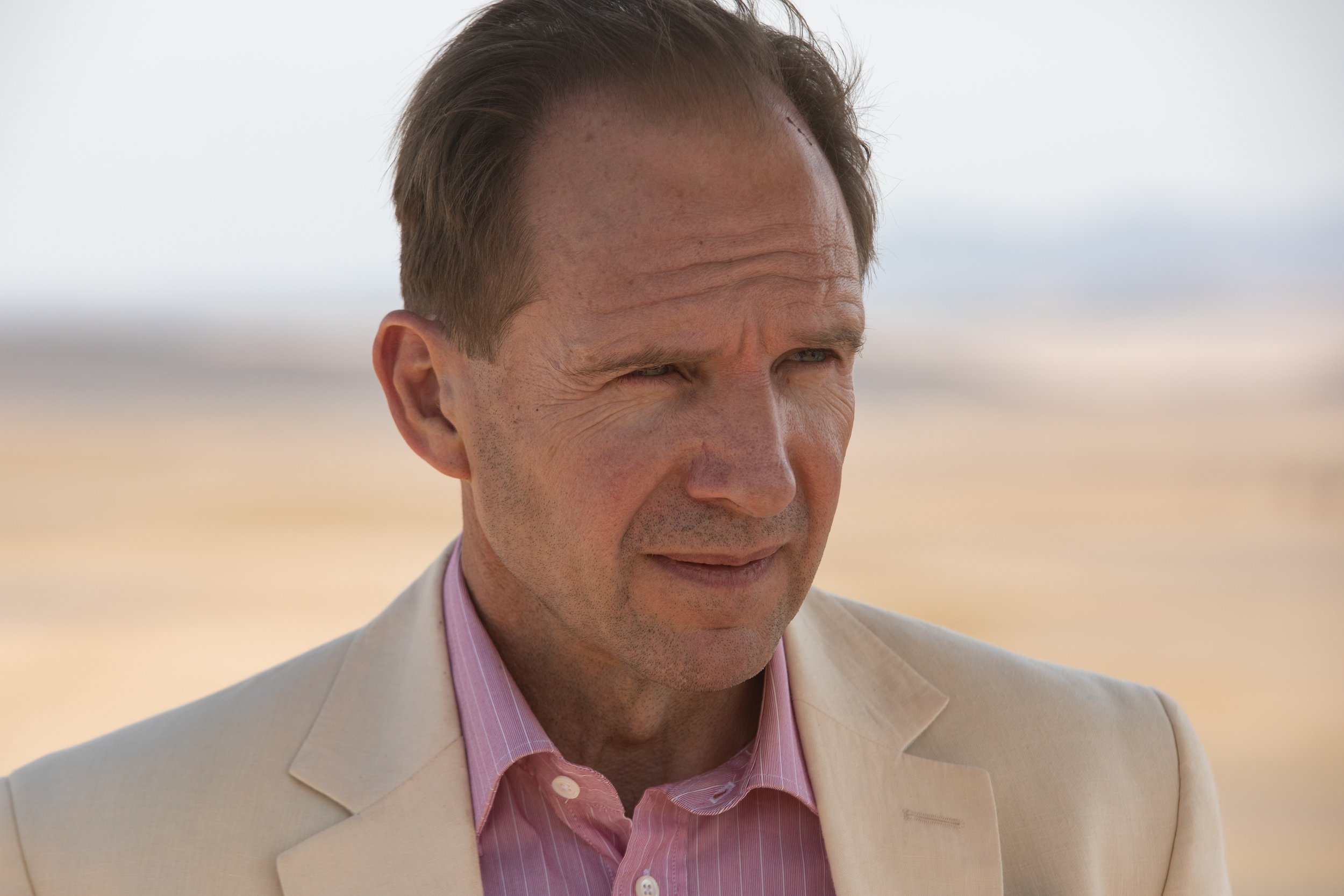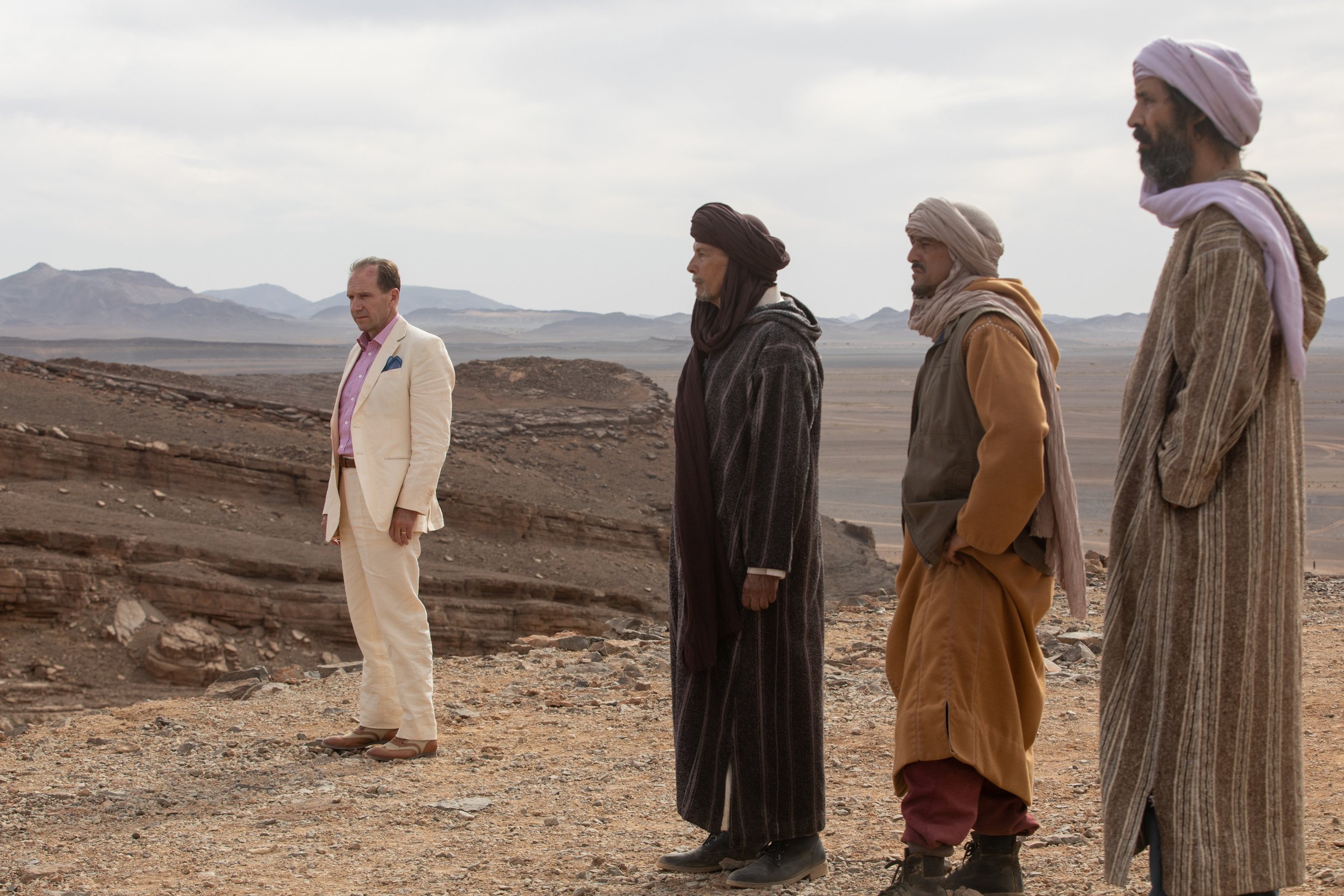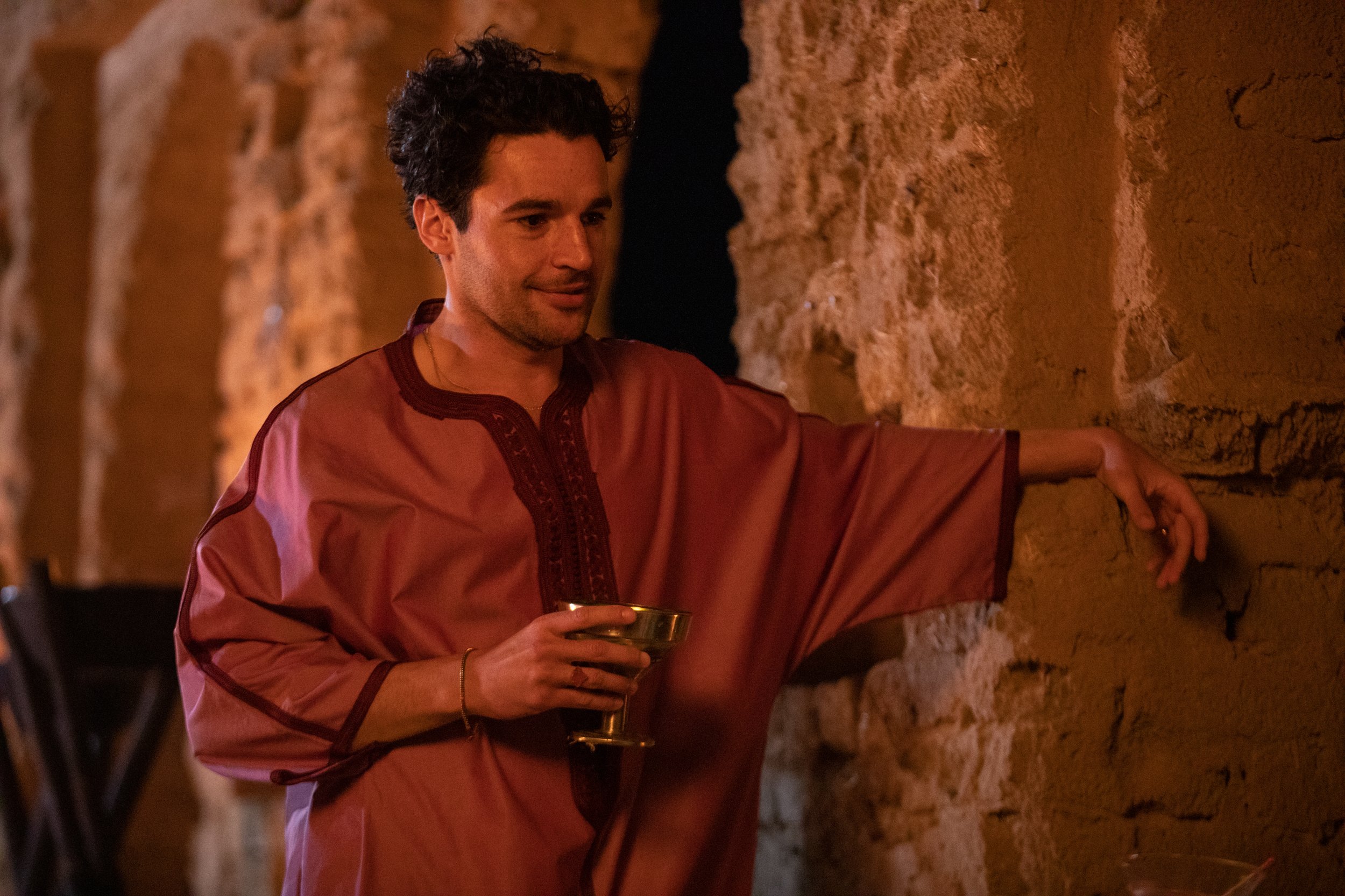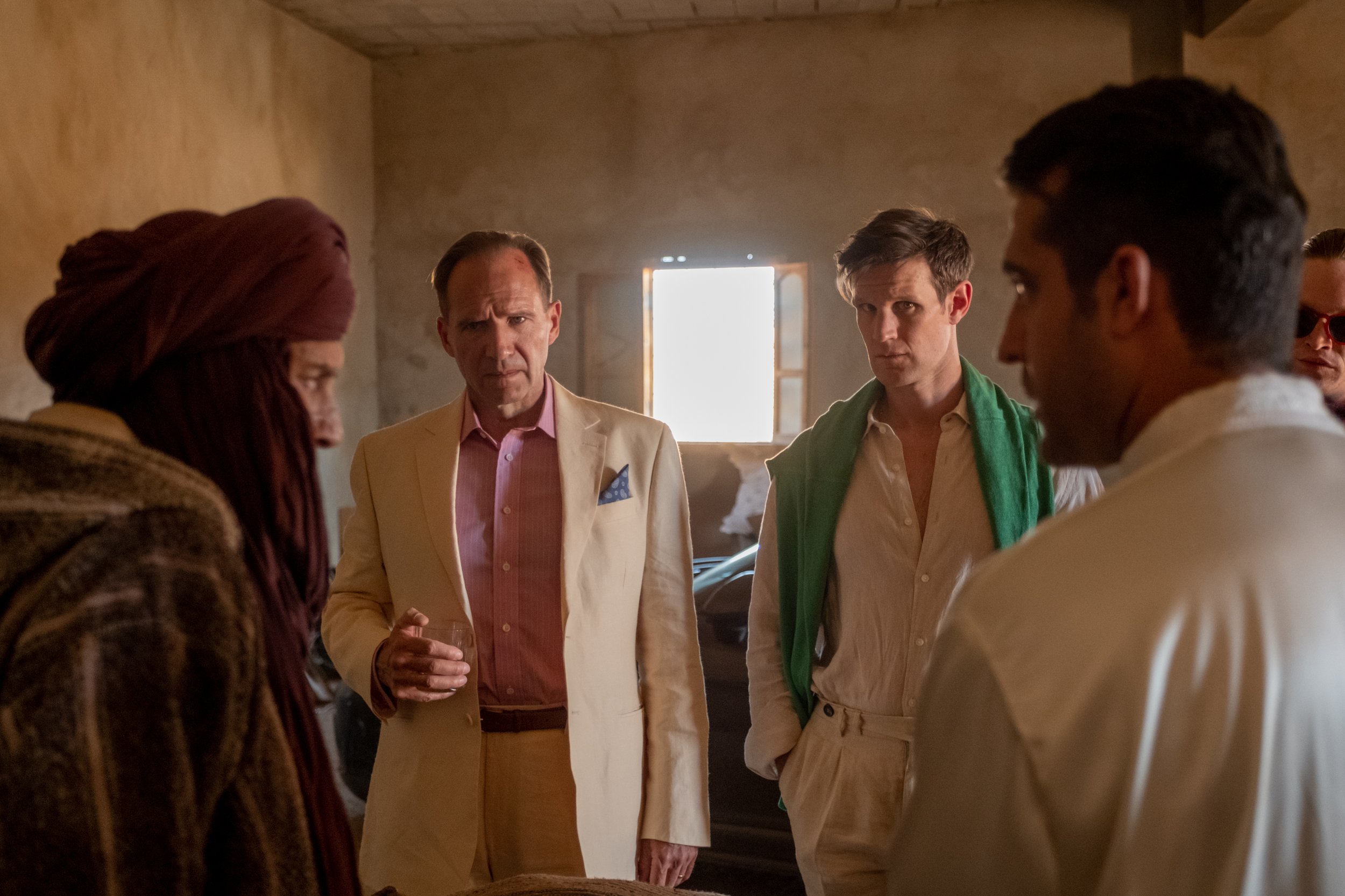MOVIE REVIEW: The Forgiven
THE FORGIVEN– 2 STARS
Pedigree meets purpose with The Forgiven, the newest film from notable director John Michael McDonagh. Throughout his career, the Englishman has switched back-and-forth with a specialty for embedding foreboding darkness within settings of comedy (The Guard, War on Everyone) and drama (Calvary, Ned Kelly). Contributing his first feature film in five years since the buddy cop comedy War on Everyone, it’s drama’s turn.
Multiple Academy Award nominee Ralph Fiennes and recently gilded winner Jessica Chastain play David and Jo Henniger. From their first appearance, no dialogue is required to detect that the married couple reeks of white privilege. Their curt and cold dialogue to each other and towards the lesser castes of people around them confirm it in short order. They have arrived in the searing heat of Morocco to attend an opulent weekend party.
The high society soiree is hosted by prissy socialite Richard Galloway (The Crown’s Matt Smith), an old friend of David’s, and his more flamboyant American partner Dally Margolis (Caleb Landry Jones, last year’s Best Actor winner from Cannes for Nitram) at their lavishly remodeled desert castle. Traveling from the city of Tarza to Richard’s property at night, the drunk and distracted David strikes and kills a young peddler with his luxury SUV.
LESSON #1: HEY KIDS, DON’T DRINK AND DRIVE– Welcome to the easiest lesson in the world. Double that when you’re also angrily distracted by your passenger(s). Triple that when it’s nighttime. Quadruple it when you’re in a foreign country, the GPS isn’t working, and you don’t really know where you’re going on an unmarked road. Plan better, drink less, switch drivers, or wait for the morning.
When the Hennigers arrive at Richard’s with the teenage boy’s body in their backseat, emotions are high. David is more perturbed than anything else, trying to literally and figuratively wash his hands of his own guilty carelessness. The pearl-clutching Jo is incredibly shaken while Richard attempts to play the proper and calm host knowing that authorities must be called to deal with the situation.
LESSON #2: THE PROTECTIVE CONSIDERATION OF BEST INTERESTS– This tragic accident threatens to smear a person of affluence. Thanks to wealthy privilege, there are dishonest options for this situation. The police can be convinced or bribed that this was an accident. The same can also work for the local kin of the deceased. Richard suggests the miserly David be mindful of his best interests and see this cost as being spared more than being robbed. And, of course, there’s always the cover-up route because they are in a desert. However, there are far too many witnesses, including the more sympathetic local servants of Richard’s, chiefly his stoic and conflicted house manager Hamid (Mourad Zaoui of Netflix’s The Spy).
When the rumors spread and the dead boy’s father (Ismael Kanater) arrives at Richard’s estate the next day, the insistence of local custom takes over. Rather than money, the elder demands that David, the man responsible, accompany him home to bury his son as a sign of forgiveness and integrity. Without another choice to cower behind, David accepts this fate.
His journey splits the narrative of The Forgiven. The father’s trusted friend and courier Anouar (Hollywood’s go-to ethnic chameleon and soothsayer Saïd Taghmaoui) guides David through the risks of this journey venturing deeper into unchecked territory, Meanwhile, when the cat’s away the mice will play. Jo stays behind and slides into ongoing party’s vices and debauchery. The largest temptation is a flirtatious American financial hawk named Tom Day (James White and Black Bear indie darling Christopher Abbott).
LESSON #3: THE VERACITY OF CONTRITION– Nine times out of ten, if an accident like this happens to a commoner, they are distraught and awaiting a hefty legal ordeal. The party, for sure, stops in its tracks. Here in The Forgiven, this death is initially approached as a minor inconvenience curtailed by a cleansing shower, a fresh change of fine clothes, and a reloaded libation. One would have to think the goal of The Forgiven is telegraphing either contrition, comeuppance or both for the Hennigers. If that’s the pure purpose, what transpires is a very long ride for a proverbial wrist slap.
With these dual settings for the second and third acts, writer and director John Michael McDonagh bends the dichotomy of an unnerving descent into danger versus the perpetuation and continuation of sinful ambivalence. Pushes of external judgment in small moments are presented in the behaviors and momentary stump speeches Kanater’s father and of some of the party guests, including Caleb Landry Jones’ cruder better half Dally and Marie-Josée Croze’s (The Barbarian Invasions, Munich) documenting photographer. Their weak jabs come and go with little effect between silent grieving for Kanater and sips of cocktails and moneyed gazes from the other two.
For too much of The Forgiven, the deeper offenses, be them long-held ethnic slander, motivated resentment, and that capital “W” privilege, are undisciplined. Even if the threat of a gunshot of retribution stands as the great equalizer for manslaughter, what’s one less priggish cad in the world? The rich stay aloof and the natives stay contained. The desired shift towards what the film’s title calls for and the pound of flesh required to fill it is inadequate and unmoving, especially from the filmmaker that crushed us with similar goals in Calvary.
LOGO DESIGNED BY MEENTS ILLUSTRATED (#1047)


